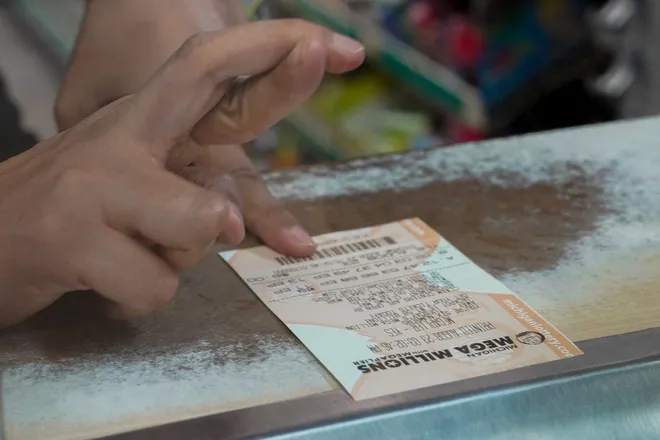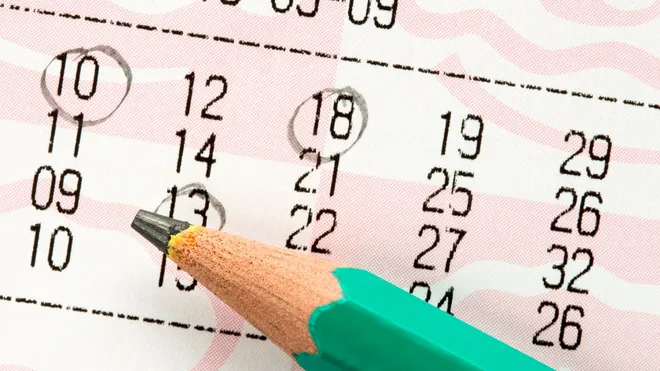Huge Mega Millions and Powerball jackpots can be deceiving: How to gamble responsibly
So you want to be a multimillionaire.
But your parents don't own a diamond mine and they're not part of some noble European lineage. You didn't invent a social media network that's used by millions around the globe. You're not a Wall Street whizkid or a hedge fund honcho.
That leaves one seemingly easy way to bring yourself into the seven-figure income bracket: Winning the lottery, especially now that the Mega Millions jackpot is an estimated $977 million (as of Thursday afternoon) and the Powerball windfall is an estimated $750 million.
If no one wins the next drawing on Friday, the jackpot will exceed $1 billion, making it one of the largest jackpots in the game's history.

Winning it all: What are the odds?
The odds, though, are not good. In fact, they're practically microscopic: The Mega Millions website puts the odds of winning the jackpot at 1 in 302,575,350. (Winning something is a little more likely, with those odds at 1 in 24, according to the Mega Millions website.)
The wisdom of playing the lottery to win "depends on what you mean by 'a good bet,'" said Jack Murtagh, who examined the math behind calculating one's chances of winning the Powerball and Mega Millions jackpots in a November 2023 article for Scientific American magazine.
Good luck?What are the odds of winning Mega Millions? You have a better chance of dying in shark attack
Winning odds hinge on the value of the jackpot, how much one stands to lose; and the probability of winning. In the Scientific American, Murtagh offers this mathematical formula:
Expected value of a bet = (probability of winning) x (winning amount) – (probability of losing) x (losing amount)

For smaller jackpots, said Murtagh, who writes about math and puzzles for Gizmodo and Scientific American, it's almost always a losing proposition. And given that more people will play as a jackpot goes higher, the odds of having multiple winners ‒ who'll split the jackpot that's also subject to being heavily taxed ‒ are another variable among many.
Lottery players may dream of a billion-dollar windfall, but reality can be very different, "especially when you figure in taxes and what you'll actually end up with in your bank account at the end."
Calculated bet:Is there a strategy to winning Mega Millions and Powerball? Tips for picking numbers
Responsible gambling, even in the lottery
According to the Mega Millions website, this is the sixth time in the lottery's 22 years that the jackpot has risen this high. Mega Millions jackpots have reached or exceeded $1 billion five times.
The last time someone won the full Mega Millions jackpot was Dec. 8, with two winning tickets in California. The $2 tickets are sold in 45 states, as well as Washington, D.C. and the U.S. Virgin Islands. Drawings take place Tuesdays and Fridays at 11 p.m. Eastern.
The biggest jackpot in Mega Millions history was $1.602 billion ‒ which one lucky person nabbed in August of last year. In fact, last year was particularly lucrative for the Mega Millions players: Another $1 billion jackpot ($1.348 billion, to be exact) was awarded to someone in Maine in January 2023.
Big jackpots can be a boon to lottery retailers and casual players, but for those with a gambling problem, the constant reminders about a big win can be problematic.
Winner, winner:Shhhh! If you win the Mega Millions jackpot, be quiet. Then, do this.
"This can be a very difficult time because there are constant reminders to play," Keith Whyte, executive director of the National Council on Problem Gambling (NCPG) wrote in an email to USA TODAY.
"Being surrounded by conversations about buying tickets can make it more tempting to play big themselves. They may also feel they're just one bet away from winning everything back; however, chasing losses is always a bad idea. For those in recovery, it is important that they recognize their triggers and seek support."
Like gambling in any form, lottery play can turn into compulsive or even addictive behavior. "The general public doesn’t always see the lottery as gambling, both legally and psychologically," Whyte said, "We know that people can develop gambling problems due to their lottery play; it may even be exclusively due to their lottery play."
The NCPG offers these tips for responsible gambling, on the lottery or anything else:
- Make sure you understand the rules of the game and the odds.
- Never borrow money to gamble.
- Don’t gamble money you can’t afford to lose.
- Treat gambling as a form of entertainment and not a way to make money.
- Hope to win but expect to lose.
- Remember: you’re playing to have a good time – never chase your losses.
In addition, the National Problem Gambling Helpline (1-800-GAMBLER; text 800GAM or www.1800gamblerchat.org) is free, confidential and available 24/7.
Murtagh has played the lottery twice "mostly to see what it's like to watch the drawing and feel the anticipation of seeing what numbers are drawn," and said casual players can certainly find guilt-free fun in playing.
"If you have the disposable income for it and you find the feeling of anticipation fun, it's a relatively cheap experience," he said. "I'm not judgmental about that, but I would tell people not to spend too much, and that it's not a viable financial plan."
Contributing: Sara Chernikoff and Ahjané Forbes, USA TODAY
Disclaimer: The copyright of this article belongs to the original author. Reposting this article is solely for the purpose of information dissemination and does not constitute any investment advice. If there is any infringement, please contact us immediately. We will make corrections or deletions as necessary. Thank you.





